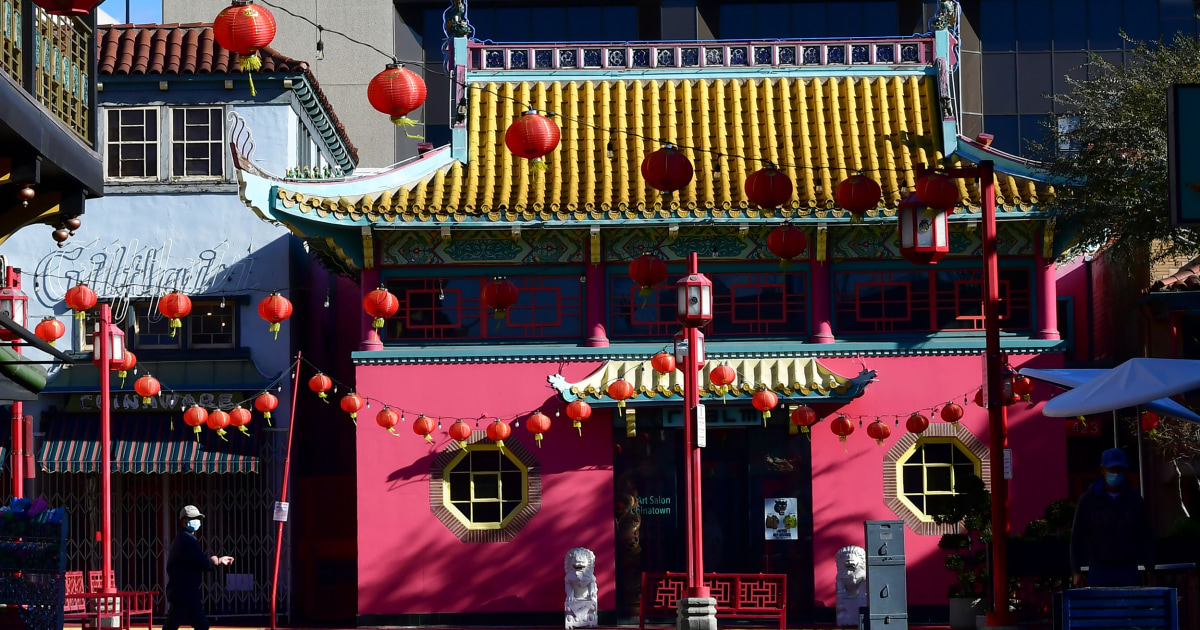
Covid-19 caused a disproportionate number of Asian-owned businesses in Southern California to close their doors and fire staff, according to a study published recently by the University of California, Los Angeles.
Out of the 400 Asian-run businesses surveyed, 60 percent reported a large negative effect from the pandemic, compared to just 40 percent of all California businesses surveyed by the U.S. Census Bureau’s Small Business Pulse Survey.
And it’s not surprising, said Paul Ong, an author on the report and professor and researcher at UCLA who has been studying Asian communities throughout the pandemic. He said a few reasons could be the fact that Asian-owned businesses tend to be in sectors that were most impacted — such as food service, hospitality and retail — and that many of them didn’t have the money to keep their businesses open when profits took a nosedive.
The racism throughout the pandemic also led people to avoid businesses in Asian neighborhoods altogether, Ong said.
“Trump and his rhetoric racialized the whole problem,” Ong told NBC Asian America. “Asian American businesses have been heavily impacted by this rhetoric, and it’s not just Chinese businesses. We see this among other Asian American businesses as well.”
The businesses that fared the best through the pandemic were those that managed to quickly transition their operations online, which was a struggle for owners who are older or lower-income.
“Unfortunately, tech skills vary with generation,” Ong said. “Younger entrepreneurs, those who grew up with this technology, those who already downloaded this technology, were better able to pivot during the pandemic.”
On top of being more susceptible to closure, he said, many Asian business owners simply didn’t know about federal aid like the Paycheck Protection Program because there was hardly any outreach in their communities.
“Before you can apply, you need to know this program exists,” he said.
Language barriers became a big factor here, Ong said. The study found that immigrants in general fared much worse than those who had been in the country for a generation.
“Many Asian American entrepreneurs are immigrants,” he said. “They can speak English, they have some rudimentary command of English, but not necessarily at the level that one needs, particularly if the information is only supplied in English.”
And if they managed to find the application, not all of them had the bandwidth to fill out massive amounts of financial paperwork.
“These are small businesses,” he said. “They may have a part-time bookkeeper who may not be the most proficient in these types of applications. They may just do barely enough in terms of records to run the business.”
Those who managed to find the aid and apply for it still received loans at a rate 11 percent lower than other businesses in the state. Ong said the pandemic has impacted Asian communities drastically, but he hopes not indelibly. Bouncing back from total loss is a slow process, though, and from what he can tell, many businesses are still struggling.
The issue in Southern California has been mirrored nationwide, with some Asian-owned businesses reporting as much as an 80 percent drop in customers at the beginning of the pandemic due to rampant anti-Asian sentiment. Chinatowns across the country saw a sharp decline in visitors as well, which many feel was a response to virus stigma.
“Originally, businesses were the top site of racism, because that’s the only place we would interact with people during quarantine — we go out shopping, and then we would interact with people,” Russell Jeung, co-founder of Stop AAPI Hate, told NBC Asian America in May. “Now we’re seeing more incidents in public places like streets and sidewalks. So it seems to me as we come out of the pandemic, everybody is interacting more in the broader public and Asian Americans are experiencing racism there as well as businesses.”
There's active discrimination, Ong said, like vandalizing a store or assaulting a community member, and then there's avoidance, just not visiting Asian businesses at all. Both were true and both heavily affected local businesses. Many found themselves at the intersection of pandemic-related losses and anti-Asian hate. "There seems to be a double whammy," he said.
"asian" - Google News
September 30, 2021 at 01:17AM
https://ift.tt/2Yax9Bg
Pandemic hit Asian-owned businesses in Southern California hardest, study finds - NBC News
"asian" - Google News
https://ift.tt/2STmru2
Shoes Man Tutorial
Pos News Update
Meme Update
Korean Entertainment News
Japan News Update

No comments:
Post a Comment